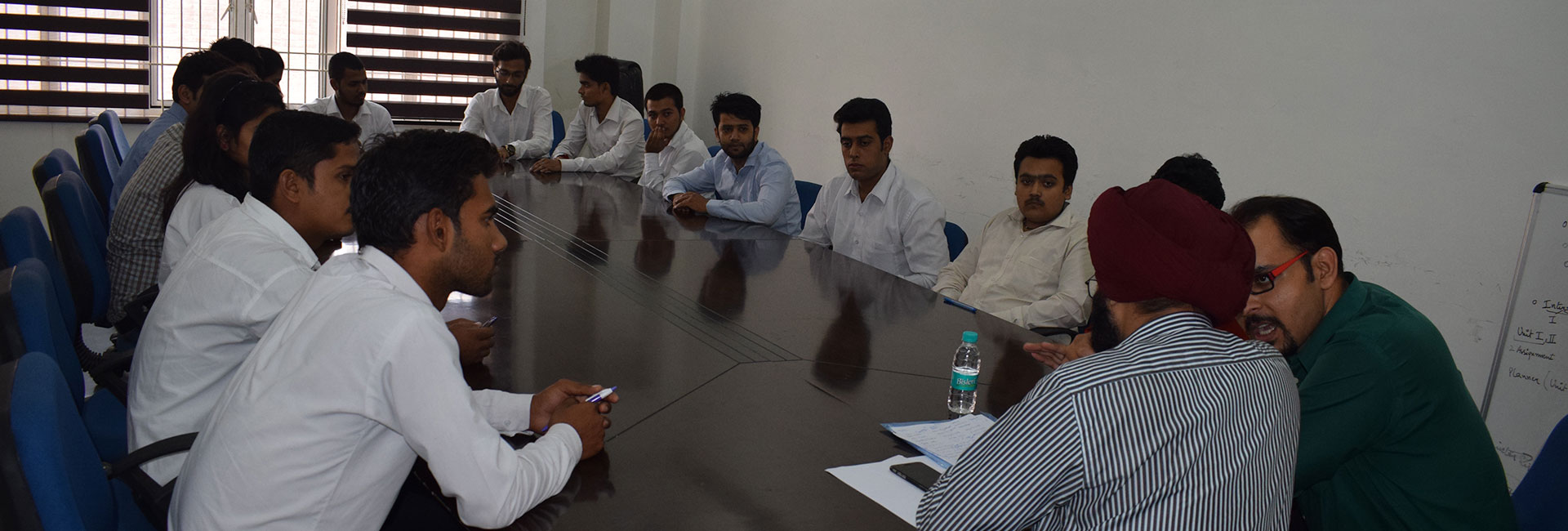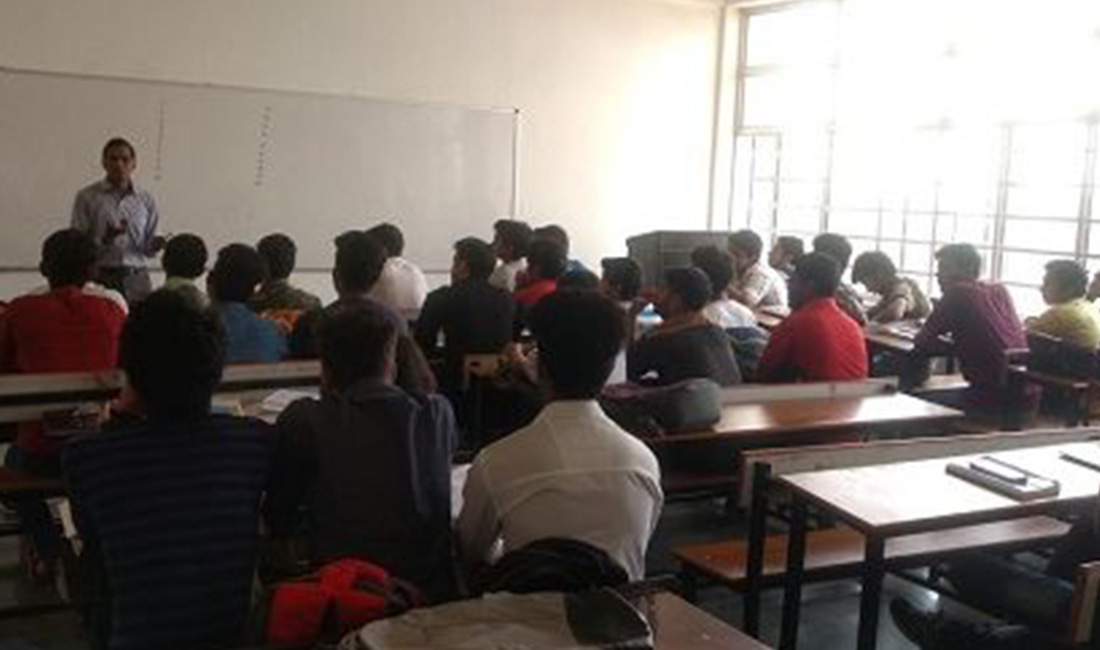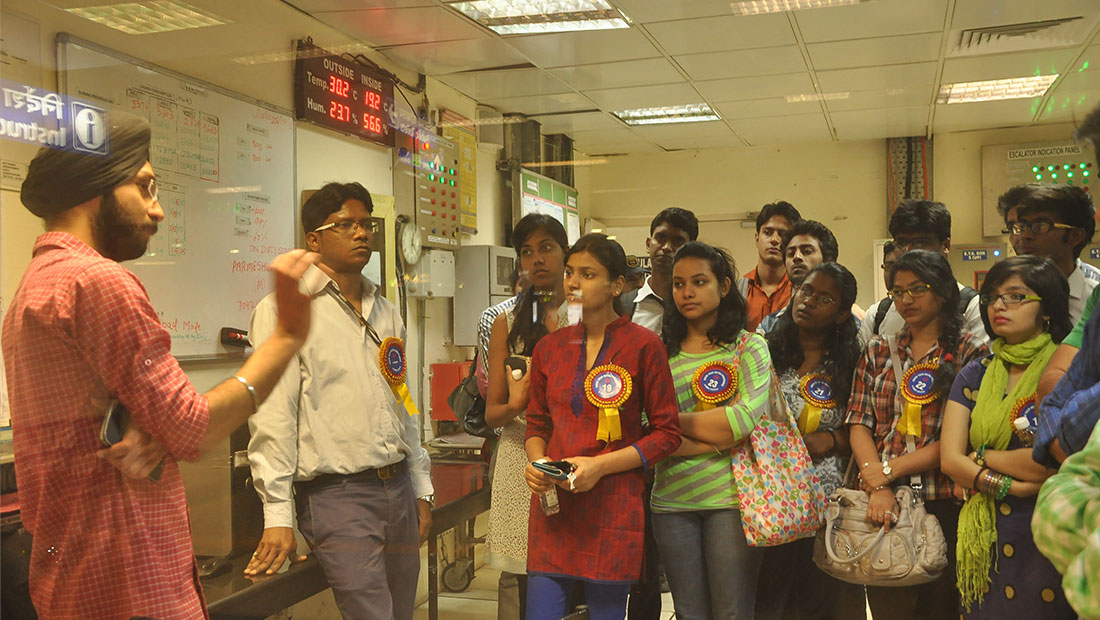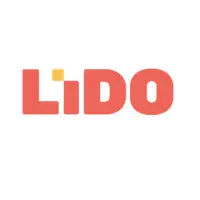2 Years
course - Approved by
AICTE, MDU
An MBA, or Master's in Business Administration, is a graduate-level degree that provides comprehensive knowledge in business and management principles. It equips students with skills in leadership, strategic thinking, and decision-making, preparing them for advanced roles in various sectors like finance, marketing, and entrepreneurship.
MBA (Master of Business Administration): Courses, Admission, Syllabus

Image: ST. Andrews MBA College
The full form of MBA is Master of Business Administration. The term "Course" in this context refers to the program of study leading to the MBA degree.
The MBA program delivers theoretical knowledge as well as offers practical insights through case studies, group projects, and, in some cases, internships.
MBA programs are designed to equip students with the necessary skills and knowledge to pursue leadership and management positions in various industries.
MBA Course Details

Image: MBA Courses Details
| Particulars |
MBA Course Details |
| MBA Full Form |
Master of Business Administration |
| Duration |
2 Years |
| Course Level |
Post-Graduation |
| Eligibility |
Undergraduate Degree Programme with 50% marks from a recognized university |
| MBA Admission Process |
Personal Interview |
| Average course fees |
INR 1,35,000 P.A. |
| MBA Specialisations |
Marketing, Finance, Human Resources, IT, International Business, Business Analytics |
| Job Profiles |
Marketing Manager, Financial Analyst, Human Resources Manager, Information Systems Manager, Business Analytics |
| Average Salary |
40 Lac. P.A. |
| Top Recruiters |
JARO Education, SNVA Ventures, Dudhi Industries, Byjus, Cvent, INTELLIPAAT, Hello Study Global Internship, Creditas Solutions, Dyson |
Types of MBA Programs
MBA programs come in various formats to cater to the different needs and schedules of students. Each type is designed to suit particular student profiles, including recent graduates, working professionals, and executives.

Image: Types of MBA Courses
Let's have a look at the main types of MBA programs:
1. Full-Time MBA Programs
Duration: Typically 1 to 2 years.
Suitable for: Individuals prepared to engage in full-time MBA programs, frequently possessing several years of professional experience or having recently completed their undergraduate studies.
Focus: Offers a comprehensive understanding of business management, with the opportunity for internships and extensive networking.
2. Part Time MBA Program
Duration: Usually takes 3 to 4 years.
Suitable for: Working professionals who cannot leave their jobs but wish to further their education.
Focus: Classes are often held in the evenings or on weekends, allowing students to work and study simultaneously.
3. Executive MBA (EMBA)
Duration: Around 1 to 2 years, with a flexible schedule.
Suitable for: Senior-level managers or executives with significant work experience, typically more than 10 years.
Focus: Designed to enhance leadership and strategic management skills without interrupting their careers.
4. Online MBA Programs
Duration: Varies, typically 1 to 3 years.
Suitable for: Individuals needing flexibility due to work, family, or geographical constraints.
Focus: Online MBA programs provide a curriculum equivalent to that of traditional MBAs, allowing students to pursue their studies from any location.
5. Accelerated MBA
Duration: About 1 year.
Suitable for: Those who can handle a more intensive and time-constrained study schedule.
Focus: Offers a fast-paced curriculum with fewer breaks between sessions, allowing students to complete their MBA faster.
6. Global or International MBA
Duration: Usually 1 to 2 years.
Suitable for: People aiming to develop a career in global commerce or enhance their knowledge of worldwide trade practices.
Focus: Focuses on global trade practices, cultural diversity, and languages, frequently incorporating opportunities for overseas studies.
7. Dual Degree MBA
Duration: Varies, typically takes longer than traditional MBA programs.
Suitable for: Students wanting to specialise in two fields simultaneously, such as MBA/JD (Law), MBA/MD (Medicine), MBA/MPH (Public Health).
Focus: Allows students to earn two degrees concurrently, preparing them for cross-disciplinary roles.
MBA Degree Courses: Eligibility Criteria

Image: St. Andrews Grils Hostel Building
The eligibility criteria for MBA degree courses in India are largely standardized across most institutions; however, specific requirements may differ slightly from one institution to another.
Here's a general overview of the eligibility criteria for pursuing an MBA degree in India:
1. Educational Qualification
Bachelor's Degree: Applicants must hold a Bachelor's degree in any discipline from a recognized university or institution.
Minimum Marks: Most institutions mandate that candidates must have achieved a minimum of 55% marks in aggregate (45% for candidates from reserved categories such as SC/ST) in their undergraduate degree.
2. Entrance Exams
Most MBA programs require scores from the CAT (Common Admission Test), XAT (Xavier Aptitude Test), CMAT (Common Management Admission Test), MAT (Management Aptitude Test) and IIFT Entrance Exam. These scores are used to assess an applicant's quantitative, verbal, and analytical writing skills.
Minimum Scores: Specific minimum scores vary by program. Competitive business schools often have higher score expectations.
3. Work Experience
Not Mandatory for All Programs: While work experience is not a mandatory requirement for most MBA programs in India, unlike some international programs, it is crucial for Executive MBA programs, where significant work experience (usually 5-10 years) is essential.
Advantage in Selection Process: Candidates possessing work experience might find themselves at an advantage in the selection process for executive MBA program, showcasing their practical knowledge and skills acquired in a professional environment.
4. Additional Requirements
Group Discussion and Personal Interview (GD/PI): Additionally, most business schools in India incorporate GD/PI rounds as part of their selection process. Performance in these rounds is a significant factor in final admissions decisions.
Written Ability Test (WAT): Some institutions may require a WAT as part of the selection process.
5. Reservation Policy
Quota System: Indian MBA colleges may have reservation policies for SC/ST/OBC candidates, Economically Weaker Sections (EWS), and Persons with Disabilities (PwD), in accordance with government regulations.
6. Application Process
Applicants need to fill out an application form, usually online, for the MBA program of their choice post-clearing the respective entrance exams.
MBA Syllabus (Semester Wise)

Image: St. Andrews Academic Block
The MBA syllabus at Maharshi Dayanand University (MDU), Rohtak, encompasses a comprehensive and diverse range of subjects designed to provide in-depth knowledge and skills in management and business administration.
The curriculum is structured around a Choice Based Credit System (CBCS), allowing for flexibility and a personalized education experience.
Furthermore, core courses encompass vital areas of business administration, including finance, marketing, HRM, operations, and strategic management.
Moreover, beyond these core subjects, students have the option to select electives tailored to their interests and career aspirations, offering a chance to specialize in particular business domains.
| Semester I |
| Management Concepts and Organizational Behaviour |
Managerial Economics |
| Accounting for Managers |
Business Statistics and Analytics |
| Operations Management |
Computer Fundamentals and Office Automation Tools |
| Business Environment |
|
| Elective Subjects |
| Business Communication Skills |
Event Management |
| Semester II |
| Financial Management |
Business Research Methods |
| Marketing Management |
IT Infrastructure Management |
| Human Resource Management |
Comprehensive Viva-voce |
| Elective Subjects |
| Entrepreneurship |
Creativity and Innovation Management |
| Semester III |
| CORE COURSES |
| Strategic Management |
Operations Research |
| Corporate Laws |
Summer Training Report |
| Discipline Specific Elective Courses (specialization areas offered under dual specialization scheme) |
| HUMAN RESOURCE MANAGEMENT |
| Compensation and Benefits Management |
Management of Industrial Relations |
| Organizational Change and Intervention Strategies |
Strategic Human Resource Management |
| Human Resource Metrics and Analytics |
|
| FINANCE MANAGEMENT |
| Indian Financial System and Financial Markets |
Investment Management |
| Project Management |
Bank Management |
| Business Taxation |
|
| INFORMATION TECHNOLOGY MANAGEMENT |
| E-Commerce and Applications |
Multimedia and Web Development |
| Data Ware Housing and Data Mining |
Enterprise Resource Planning |
| E-Governance and Framework of ICT |
|
| MARKETING MANAGEMENT |
| Digital Marketing |
Consumer Behaviour |
| Customer Relationship Management |
Retail Management |
| Services Marketing |
|
| BUSINESS ANALYTICS |
| Business Analytics |
Predictive Business Analytics |
| Fundamentals of Data Mining |
Time Series Econometrics |
| Fundamental of Econometrics |
|
| Semester IV |
| CORE COURSES |
| B2B Marketing |
Project Report |
| CSR and Business Ethics |
Comprehensive Viva-voce 1 |
| Discipline Specific Elective Courses (specialization areas offered under dual specialization scheme) |
| HUMAN RESOURCE MANAGEMENT |
| Business Negotiations and Employee Relations |
International Human Resource Management |
| Training and Development |
Performance Management Systems |
| Managing Interpersonal and Group Processes |
|
| FINANCE MANAGEMENT |
| Insurance and Risk Management |
International Financial Management |
| Management of Financial Services |
Financial Decision Analysis |
| Financial and Commodity Derivatives |
|
| INFORMATION TECHNOLOGY MANAGEMENT |
| Knowledge Management |
Programming in Visual Basic |
| Information Security and Cyber Laws |
E-Business Information Systems Management |
| Systems Analysis and Design |
|
| MARKETING MANAGEMENT |
| Integrated Marketing Communications |
Sales and Distribution Management |
| Marketing Research |
Industrial Marketing |
| Product and Brand Management |
|
| BUSINESS ANALYTICS |
| Economics for Business Strategy |
Mathematical Statistics |
| Applied Multivariate Analysis |
Market Microstructure |
| Information Economics and its Applications |
|
MBA Specializations at St. Andrews
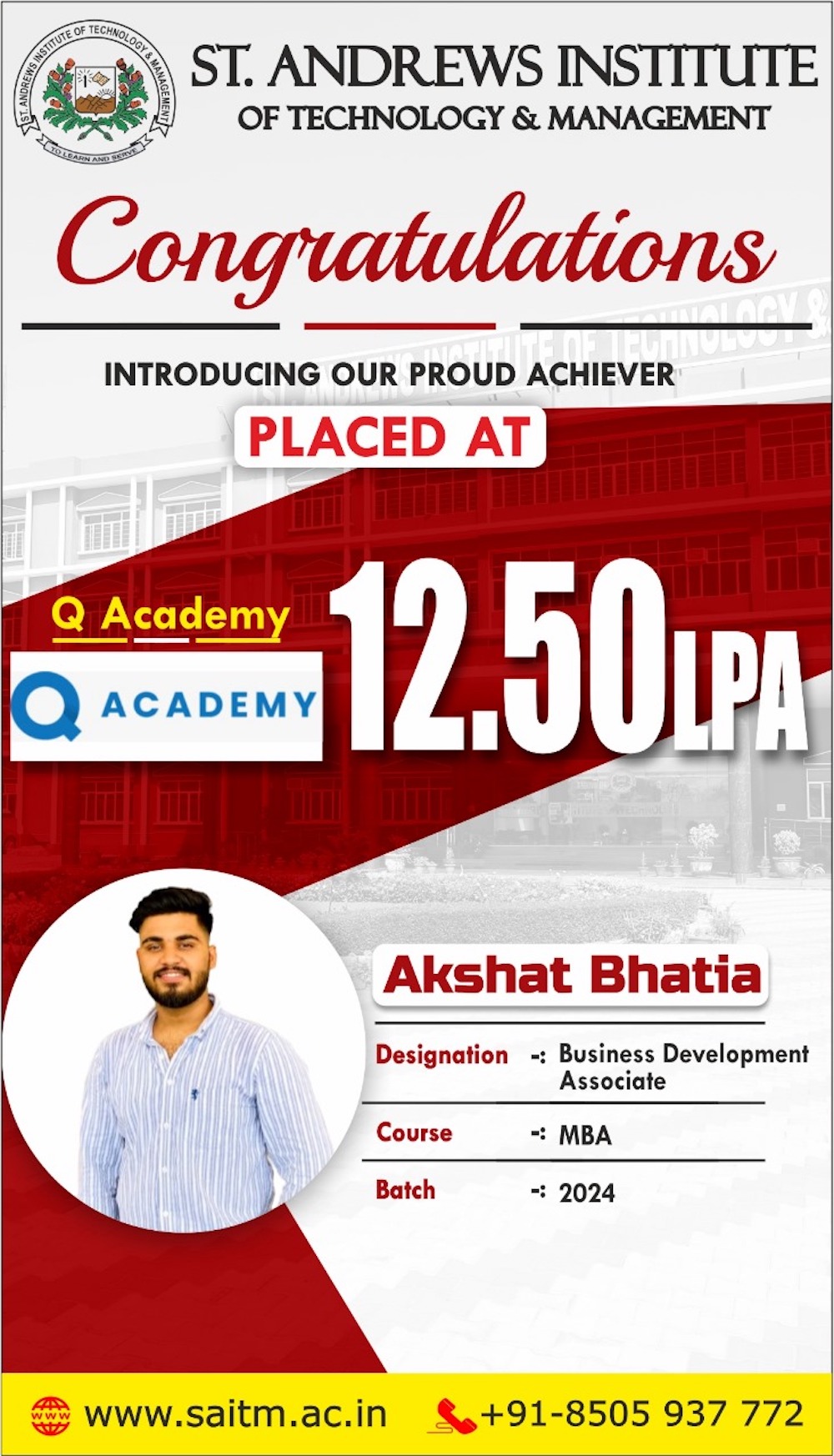
Image: MBA Student Placement
The MBA program at St. Andrews offers a comprehensive curriculum designed to prepare students for leadership roles in business. With a focus on practical skills and global perspectives, students gain valuable insights and experience to excel in their careers.
The program emphasizes critical thinking, problem-solving, and effective communication, equipping graduates with the tools they need to succeed in today's competitive business environment.
Additionally, the MBA program at St. Andrews facilitates networking, mentorship, and experiential learning opportunities, enabling students to forge valuable connections and practical application of their knowledge in real-world scenarios.
Specializations
Marketing: Focuses on developing strategies for product promotion, branding, and market research.
Finance: Concentrates on financial management, investment analysis, and risk assessment.
Human Resources: Centres on talent management, recruitment, training, and organizational development.
IT: Covers IT management, systems analysis, and digital innovation.
Business Analytics: Emphasizes data-driven decision-making, predictive modeling, and data visualization.
Each specialization equips students with the specific skills and knowledge needed for success in their chosen field, providing a pathway to pursue rewarding careers in diverse industries.
MBA jobs: What can you do with an MBA?

Image: Management of MBA College getting award
An MBA degree can open the door to a wide range of career opportunities across various industries.
This flexibility arises due to the holistic business education offered by MBA programs, encompassing both theoretical knowledge and practical skills across various domains, including management, leadership, finance, marketing, and strategy.
Here are some of the career paths you can pursue with an MBA Program:
1. Management Consulting
Role: Advising companies on how to improve efficiency, increase profits, and structure business operations.
Employers: Top consulting firms like McKinsey & Company, Boston Consulting Group (BCG), and Bain & Company, as well as smaller boutique firms.
2. Investment Banking
Role: Helping organizations raise capital, advising on mergers and acquisitions, and providing other financial services.
Employers: Major banks like Goldman Sachs, Morgan Stanley, and J.P. Morgan.
3. Entrepreneurship
Role: Starting or growing your own business.
Application: Utilizing MBA knowledge in business planning, finance, marketing, and strategy to build successful companies.
4. General Management
Role: Overseeing operations, developing business strategies, and managing teams within a company.
Employers: A wide range of industries, including technology, manufacturing, healthcare, and retail.
5. Marketing Management
Role: Developing marketing strategies to increase brand awareness, market share, and revenue.
Employers: Consumer goods companies, tech firms, pharmaceuticals, and marketing agencies.
6. Operations Management
Role: Improving the efficiency of production and distribution processes.
Employers: Manufacturing firms, logistics companies, and e-commerce businesses.
7. Financial Management
Role: Managing an organization's financial health through planning, directing investment activities, and developing strategies.
Employers: Corporations across all sectors, financial institutions, and government agencies.
8. Human Resources Management
Role: Overseeing recruitment, training, performance evaluations, and employee relations.
Employers: Human resource management is essential across all sectors, including large corporations, startups, and public sector organizations.
9. Technology Management
Role: Bridging the gap between technology teams and business strategies to drive innovation and efficiency.
Employers: Tech companies, IT departments across various industries, and startups.
10. Health Care Management
Role: Managing operations, compliance, finance, and strategic planning in hospitals, clinics, and other healthcare facilities.
Employers: Healthcare institutions, public health organizations, and insurance companies.
11. Project Management
Role: Planning and executing projects within scope, time, and budget constraints.
Employers: Technology firms, construction companies, and government agencies.
12. Supply Chain Management
Role: Overseeing and improving logistics and supply chain operations.
Employers: Manufacturing firms, retail chains, and logistics companies.
13. International Business Management
Role: Managing business operations across different countries and cultures.
Employers: Multinational corporations, international NGOs, and global consulting firms.
An MBA provides a strong foundation in business principles, along with the opportunity to specialize in areas that align with individual career goals.
MBA Degree Cost
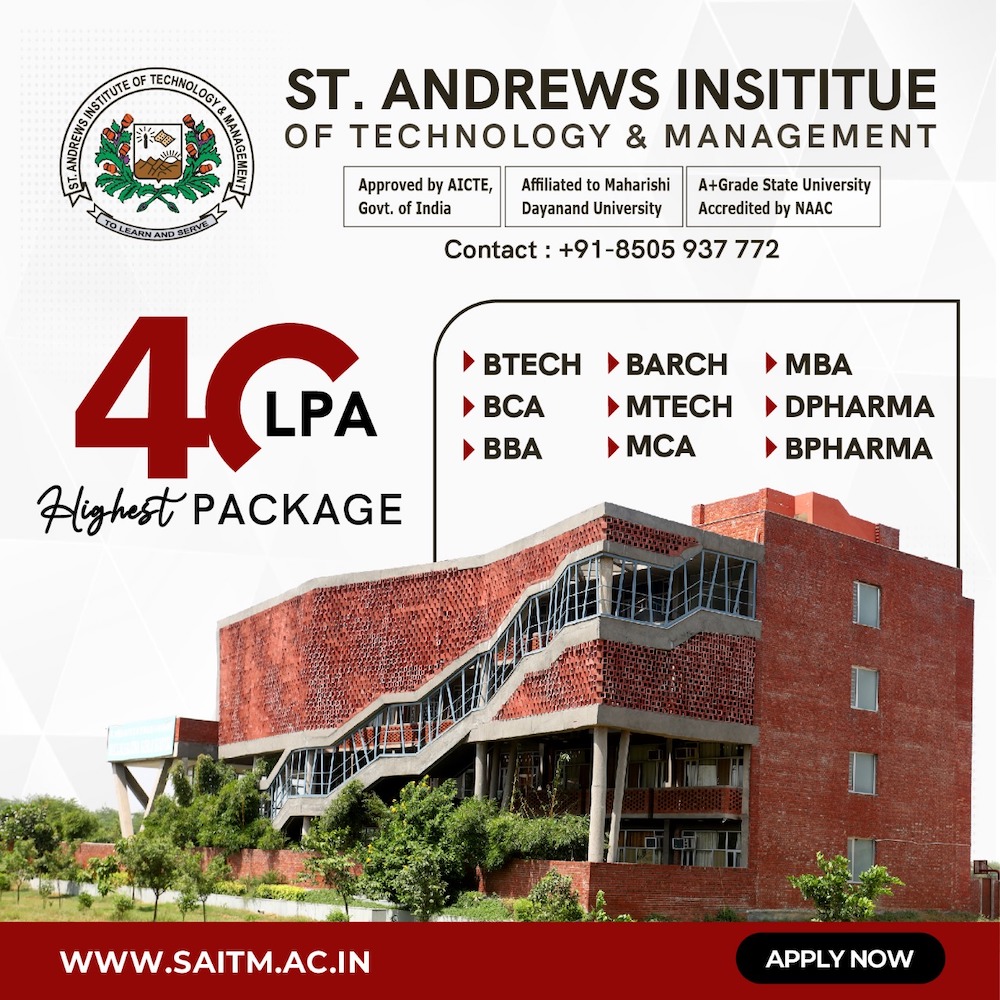
Image: St. Andrews College Courses
The cost of an MBA degree in India can fluctuate considerably, influenced by a variety of factors such as the nature of the institution (public versus private), its reputation, geographical location, and the duration of the program.
Generally, MBA programs in India can be grouped into three main categories based on their fee structure:
- Low-cost options: Government and state universities can offer MBA programs at significantly lower costs, ranging from INR 20,000 to INR 4,00,000 for the entire program.
- Mid-range institutions: Private colleges and some private universities might charge anywhere between INR 3,00,000 to INR 10,00,000 for a full-time MBA program.
- Premium institutions: Premier business schools in India like top-rated institutions have MBA or equivalent PGDM (Post Graduate Diploma in Management) programs that can cost anywhere from INR 10,00,000 to INR 30,00,000 or more for the entire course.
Additional Costs
Moreover, beyond tuition fees, prospective MBA students should also consider other financial aspects such as accommodation, food, study materials, and miscellaneous living expenses. These costs can differ greatly, influenced by the location of the institution and the individual's lifestyle choices.
Financing Your MBA
To finance their studies, students often rely on a combination of savings, family support, educational loans, and scholarships. Many banks in India offer educational loans for MBA programs at competitive interest rates.
ROI Consideration
In the process of evaluating the cost of MBA programs, it becomes imperative to contemplate the return on investment (ROI). This consideration is crucial as ROI is determined by a myriad of factors, notably the elevation in salary post-MBA, opportunities for career advancement, and the scope for personal and professional development.
MBA Program Salary: What can you earn?
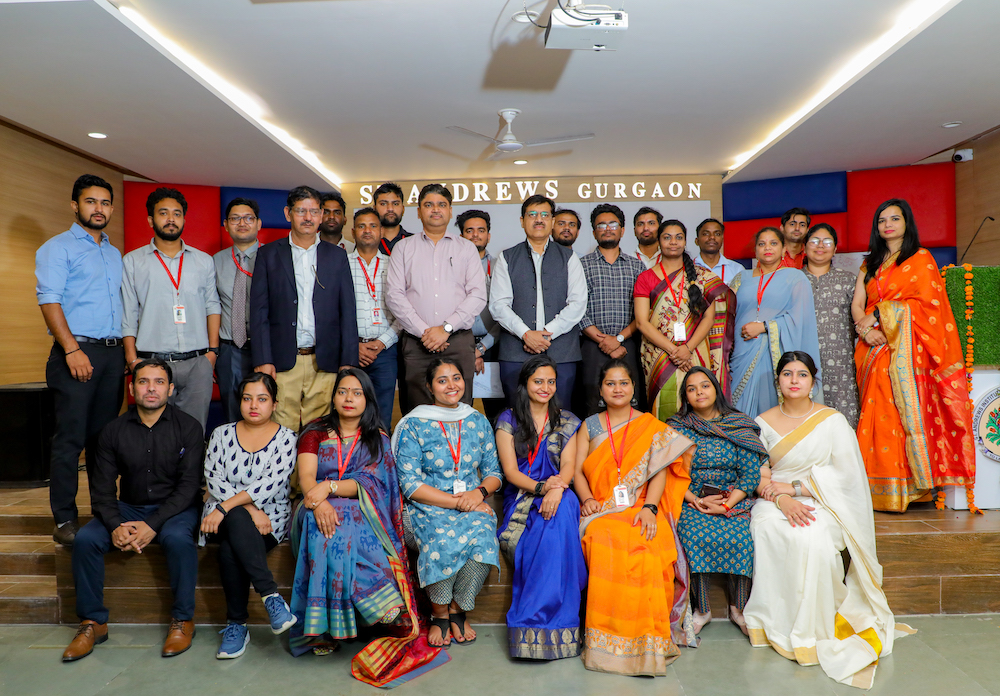
Image: Academic Workshop at St. Andrews
Salaries for MBA graduates in India exhibit a broad range based on multiple determinants, including the graduate's field of specialization, the sector of employment, prior experience, and geographical location. As an illustration, starting salaries for MBA graduates might commence at approximately INR 290,000 and progressively escalate with the accumulation of experience.
For those with 1 to 4 years of experience, salaries can grow up to around INR 390,000 or more. With 5 to 9 years of experience, this can rise to about INR 720,000, and with over 10 years of experience, the average salary might be around INR 1,400,000.
For senior management roles with over 20 years of experience, salaries can average at INR 2,550,000.
The location also plays a significant role in determining salaries.
For example, Gurgaon, as a bustling corporate hub, significantly stands out by offering some of the highest average salaries to MBA graduates, approximately amounting to INR 750,000. Banglore and Mumbai follow closely, with average salaries around INR 730,000 and INR 732,000 respectively.
Specific job roles also come with different salary ranges. A Financial Analyst might earn between INR 549,320 AND INR 877,720, while Marketing Managers can expect salaries ranging from INR 450,000 to INR 1,850,000.
IT Managers salaries range from INR 545,000 TO INR 1,200,000, indicating the IT sector's robust demand.
Additionally, specializations influence earning potential.
For example, MBA graduates with a specialization in Finance can expect to start with around INR 3.98 LPA and potentially earn above INR 15 LPA after 10 years of experience. Those specialized in IT can start with around INR 5 LPA and see this rise to INR 14 LPA or more with a decade of experience.
Finally, it's important to note that the recruiting company plays a pivotal role in determining the salary package. Large corporations and well-known brands typically might extend higher compensation packages, in contrast, startups and medium-sized enterprises tend to offer slightly lower salaries. However, these smaller entities often compensate for this with additional incentives, such as equity participation.
MBA Concentrations and Specializations

Image: Project Competition at St. Andrews
MBA programs offer a variety of concentrations and specializations, allowing students to focus on a particular area of interest within the business world.
Here's a detailed look at some of the options:
Finance
MBA students engage in learning about financial planning, management, and analysis through courses that may include topics like international finance, investment analysis, and mergers and acquisitions within their MBA program.
Marketing
This concentration within MBA courses delves into the strategies and tactics for promoting and selling products and services, with classes potentially focusing on digital marketing, consumer behaviour, and brand management.
Human Resource
MBA courses specializing in HR provide students with a comprehensive skill set geared towards efficiently managing an organization's workforce. These programs cover a range of subjects, including strategic HR management, employment law, and organizational development, enabling students to gain expertise in navigating complex HR challenges effectively.
Information Technology (IT)
Combines business with the study of information systems and technology. Topics could include IT strategy, data analytics, and management information systems.
Business Analytics
The MBA degree emphasizes the utilization of data for strategic business decision-making. Coursework may explore various areas including predictive analytics, decision-making models, and data visualization techniques.
Entrepreneurship
For those looking to start their own business or take on business development roles, this specialization teaches about venture creation, financing startups, and innovation.
International Business
Prepares students for a global business career, with classes on international trade, global economics, and cross-cultural management.
Operations Management
Teaches how to run production systems and deliver services effectively. Topics might include supply chain management, logistics, and quality control.
Consulting
Focuses on problem-solving skills, strategic thinking, and client management, which are crucial in the consulting industry.
Healthcare Management
Combines business administration with healthcare policy, giving students a background in how healthcare services are provided, funded, and regulated.
Sustainability
Concentrates on business practices that support environmental stewardship, resource conservation, and social responsibility.
Supply Chain Management
Involves managing the flow of goods and services, including all processes that transform raw materials into final products.
Within the MBA degree program, each specialization equips students with the necessary skills and knowledge tailored to their chosen fields. This approach offers depth in a specific area while maintaining the broader perspective crucial for assuming leadership roles in business.
MBA Degree Candidate Requirements
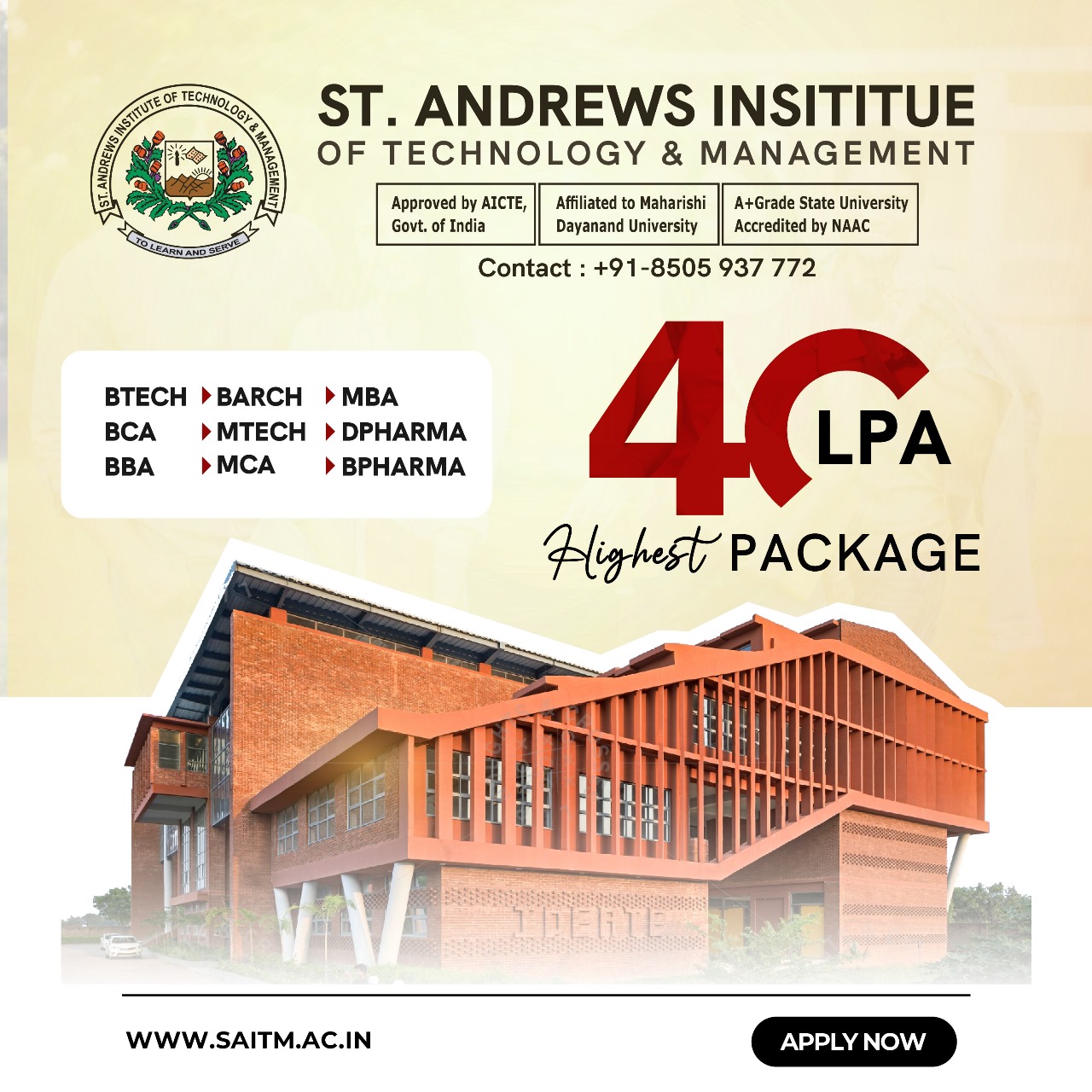
Image: St. Andrews new MBA Block
For MBA admissions, candidates usually must fullfill specific requirements to qualify for admission to most business schools. This approach not only provides depth in a specific area but also ensures the retention of the broader perspective necessary for assuming leadership roles in business.
Bachelor's Degree
Applicants must have a completed undergraduate degree from a recognized institution, often with a minimum GPA requirement.
Work Experience
Some programs require applicants to have professional work experience, which can range from two to five years or more, depending on the program's focus and level of study.
Entrance Exams
Many MBA programs mandate applicants to furnish their entrance exam scores, encompassing results from various exams such as the Common Admission Test (CAT), Xavier Aptitude Test (XAT), Common Management Admission Test (CMAT), Management Aptitude Test (MAT), and the IIFT Entrance Exam.
English Language Proficiency
For non-native English speakers, English language proficiency tests like TOEFL or IELTS scores may be required.
Essays
Personal statements or essays are typically part of the application process, allowing candidates to convey their motivation, goals, and suitability for the program.
Letters of Recommendation
Letters from professional or academic referees who can vouch for the candidate's potential for success in an MBA program are often requested.
Interview
Many programs include an interview process to assess a candidate's communication skills, leadership potential, and fit for the program.
Academic Transcripts
Official transcripts from all undergraduate and, if applicable, graduate institutions the candidate has attended.
Application Form and Fee
Completion of an application form and payment of an application fee are usually part of the process.
Extra-curricular Activities
Participation in extra-curricular activities or evidence of leadership experience can be beneficial.
MBA Courses Scholarships

Image: MBA Alumni Convocation
In India, numerous scholarships for MBA courses are available to students, provided by a range of institutions, including the prestigious Indian Institutes of Management (IIMs), banks, and other organizations.
Here is a brief overview of some scholarship in India:
IDFC FIRST Bank MBA Scholarship: Offers INR 1,00,000 per year to students enrolled in the first year of full-time MBA programs based on certain eligibility criteria, such as having a gross annual family income of less than INR 6 lakhs.
Post Graduate Scholarship for Professional Courses for SC/ST: Offered by the UGC and Ministry of HRD, this scholarship supports SC/ST students pursuing professional postgraduate courses, including MBA courses. Eligible MBA students receive a monthly stipend of INR 4,500.
ONGC Scholarship: Aimed at meritorious General category students in the first year of their MBA program, with a family income not exceeding INR 2 lakhs per annum. The scholarship amount is INR 48,000 annually.
Scholarships Offered by IIMs: Each IIM provides a range of scholarships tailored to merit, financial need, and other specific criteria for MBA courses. These scholarships may encompass fee waivers, monthly stipends, or one-time awards.
Top MBA Entrance Exams in India

Image: St. Andrews College Management Building LAB
For MBA aspirants globally, several entrance exams serve as gateways to prestigious business schools. These exams evaluate various skills like quantitative ability, logical reasoning, verbal ability, and more, catering to the diverse selection criteria of MBA programs worldwide.
Here's an overview of top MBA entrance exams:
Common Admission Test (CAT): The most prestigious MBA entrance exam in India, conducted by the Indian Institutes of Management (IIMs). It's a gateway to not only the IIMs but also numerous other top-tier business schools across the country.
Xavier Aptitude Test (XAT): Conducted by XLRI Jamshedpur, XAT is another prominent entrance exam for MBA aspirants. Scores from XAT are accepted by many reputed MBA colleges in India.
Management Aptitude Test (MAT): Conducted by the All India Management Association (AIMA), MAT is a standardized test that screens candidates for admission to various MBA and allied programs.
Common Management Admission Test (CMAT): Conducted by the National Testing Agency (NTA), CMAT scores are accepted by a wide range of management institutes across India.
Indian Institute of Foreign Trade (IIFT) Entrance Exam: Specifically for admission to the MBA (International Business) program at the Indian Institute of Foreign Trade, this test evaluates a candidate’s aptitude for foreign trade management.
Prospective MBA students should choose exams based on their target programs and schools, test format preferences, and application timelines. Preparing well for these exams is crucial, as they play a significant role in the admission process of top business schools globally.
MBA admissions: Applying for an MBA
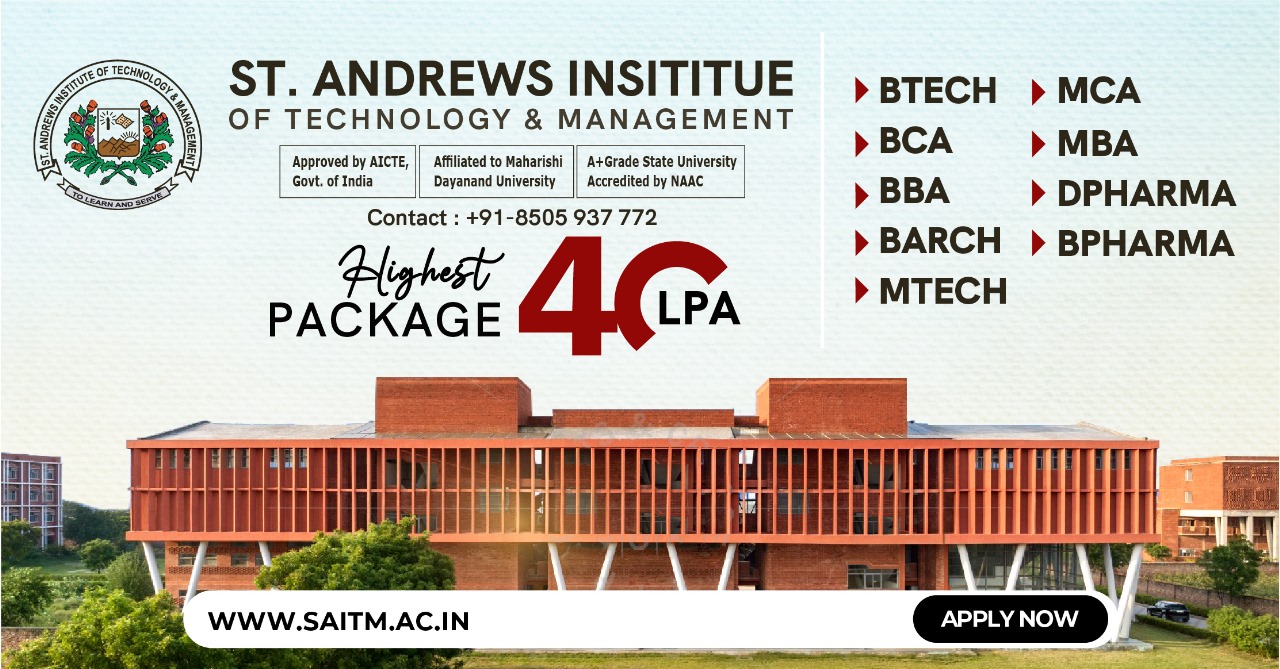
Image: Overview of the Courses at St. Andrews
MBA admissions entail several critical steps, each pivotal for securing admission to a prestigious business school.
Here's a comprehensive guide on navigating the MBA application process:
1. Research and Choose Programs
Identify Your Goals: Understand why you want an MBA and what you hope to achieve. This will guide your selection of schools.
Select Programs: Consider factors like specialization, location, duration, cost, culture, and rankings. Shortlist programs that align with your career goals and personal preferences.
2. Understand Application Requirements
Each program may have different requirements, but common elements include:
Entrance Exams: Prepare for and schedule exams like the GMAT, GRE, or specific entrance tests required by the program (e.g., CAT for IIMs in India).
Transcripts and Academic Records: Gather your undergraduate and any postgraduate transcripts.
Professional Experience: Most programs value work experience. Detail your professional background, achievements, and how it has prepared you for an MBA.
3. Prepare Your Application
Resume/CV: Update your resume to highlight your professional achievements, leadership experience, and any relevant skills.
Essays: Many programs require essays or personal statements. These should articulate your career goals, reasons for choosing the MBA program, and how you can contribute to the school.
Letters of Recommendation: Select recommenders who know you well and can speak to your strengths and potential for success in business. Typically, these are current or former employers or colleagues.
Interview Preparation: As part of MBA admissions, certain schools integrate an interview process, which can occur either before or after the initial application screening. It's advisable to rehearse common interview questions and express your thoughts with clarity and confidence.
4. Apply for Scholarships and Financial Aid
Research available scholarships, grants, and loan options offered by the institutions or external bodies.
Prepare necessary documents and applications for financial aid, if required.
5. Submit Applications
Timing: Be aware of application deadlines, which can vary by school and round. Applying in the first or second round can sometimes increase your chances of acceptance.
Application Fees: Ensure you can cover the application fees for each program.
6. Follow Up and Prepare for Interviews
After submitting your application, stay prepared for potential interviews. Some schools might conduct them as part of the selection process.
Keep track of all your applications and prepare for any next steps.
7. Make Your Decision
If you receive multiple offers, weigh the pros and cons of each program based on your initial criteria and any new information or insights gained through the application process.
8. Prepare for Enrollment
Once you've accepted an offer, complete any required administrative tasks, such as submitting final documents, applying for visas (if studying abroad), and preparing for relocation if necessary.
The MBA application process can be intensive and requires thorough preparation. Start early to give yourself enough time to prepare a strong application. Networking with alumni or attending information sessions can also provide valuable insights and strengthen your application.
MBA Salary Benefits

Image: Management Learning Block
Pursuing an MBA can offer significant salary benefits, making it a compelling investment for many professionals. The degree is highly regarded worldwide and is often associated with a substantial increase in earning potential. Here are key factors contributing to the salary benefits of an MBA:
1. Higher Starting Salaries
MBA graduates generally command higher starting salaries compared to their counterparts with only undergraduate degrees. This contrast is especially noticeable in industries such as finance, consulting, and technology.
2. Career Advancement
An MBA can accelerate career progression, leading to more senior and higher-paying roles. The degree equips individuals with a broad skill set and knowledge base that are highly valued in leadership and management positions.
3. Access to a Wider Range of Opportunities
The versatility of an MBA allows graduates to explore opportunities across various sectors and industries, including roles that may not have been accessible with their previous qualifications or experience.
4. Improved Professional Network
MBA programs provide access to a vast network of alumni, faculty, and industry professionals. This network can be invaluable for career advancement and may lead to opportunities with higher compensation.
5. Enhanced Skills and Knowledge
The comprehensive curriculum of an MBA program covers essential business and management concepts, analytical techniques, and strategic thinking. These skills are critical for high-level decision-making and can directly impact an organization's profitability, leading to higher compensation packages.
6. Global Mobility
An MBA is recognized globally, which can open doors to lucrative opportunities in international markets. Graduates often find that their earning potential increases significantly when they are open to positions abroad.
7. Negotiation Leverage
With an MBA, professionals have greater leverage when negotiating salaries, either in their current roles or when considering new opportunities. The credential is a testament to their expertise and value to an organization.
8. Specialization and Niche Skills
Many MBA programs offer specializations in high-demand areas such as digital marketing, data analytics, finance, and supply chain management. Specializing can lead to opportunities in niche areas with limited talent pools, driving up salary offers.
Industry and Regional Variations
It's important to note that the salary benefits of an MBA can vary significantly depending on the industry, the specific role, and the region.
For instance, MBA graduates working in finance in major financial centers like New York or London may see different salary benefits than those working in the tech industry in Silicon Valley or Bangalore.
Return on Investment (ROI)
While the initial cost of an MBA program can be high, especially for top-tier schools, the long-term salary benefits often justify the investment. Prospective students should consider the program's cost against the potential salary increase and career advancement opportunities post-graduation.
In summary, an MBA can significantly enhance one's earning potential and career prospects. The degree provides the skills, network, and credentials needed to access higher-paying positions, negotiate better salaries, and achieve faster career progression.
MBA Courses Career Scope

Image: Highest Package Record
MBA (Master of Business Administration) programs offer a broad spectrum of career opportunities across various industries.
Career success post-MBA is broad-reaching, attributed to the versatile skills and strategic understanding that the degree instills.
Here's a breakdown of career paths across different MBA specializations:
1. General Management
Roles: CEOs, General Managers, Operations Managers
Industries: Diverse, including manufacturing, retail, technology, and healthcare
Scope: Broad, focusing on leadership, strategic planning, and overseeing operations
2. Finance
Roles: Investment Banker, Financial Analyst, Chief Financial Officer, Risk Manager
Industries: Banking, financial services, investment firms, corporate finance departments
Scope: Managing investments, financial planning, analysis, and risk management
3. Marketing
Roles: Brand Manager, Marketing Manager, Product Manager, Digital Marketing Specialist
Industries: FMCG, retail, e-commerce, advertising agencies, digital marketing firms
Scope: Developing marketing strategies, managing brand and product portfolios, digital marketing, and sales management
4. Human Resources (HR)
Roles: HR Manager, Talent Acquisition Specialist, Learning and Development Manager
Industries: All industries (every organization needs HR functions)
Scope: Managing recruitment, training, employee relations, and compensation and benefits
5. Operations Management
Roles: Operations Manager, Supply Chain Manager, Logistics Manager, Quality Assurance Manager
Industries: Manufacturing, logistics, e-commerce, supply chain management firms
Scope: Optimizing operations, managing supply chains, improving efficiency, and quality control
6. Information Technology (IT) and Systems
Roles: IT Manager, Systems Analyst, Product Manager (Tech), Data Analyst
Industries: IT and software companies, technology startups, any business with IT needs
Scope: Managing IT resources, analyzing business processes and systems, data management and analytics
7. Logistics
Role: Supply Chain Management, Transportation Management, Inventory Management, Warehouse Management
Industries: Manufacturing, retail, e-commerce, transportation, and logistics service providers
Scope: Global supply chain management, optimizing operations, strategic planning, and leadership in diverse industries
8. Entrepreneurship
Roles: Startup Founder, Business Development Manager, Venture Capital Analyst
Industries: Startups, venture capital firms, self-employed
Scope: Starting or managing a business, securing funding, business growth and development
9. Consulting
Roles: Management Consultant, Strategy Consultant, Operations Consultant
Industries: Consulting firms, independent consulting
Scope: Advising businesses on various aspects, including strategy, operations, finance, and HR
10. International Business
Roles: International Sales Manager, Global Business Development Manager, Export-Import Manager
Industries: Multinational corporations, export-import companies, global supply chain firms
Scope: Managing international operations, cross-border transactions, global market strategy
11. Healthcare Management
Roles: Healthcare Administrator, Hospital Manager, Healthcare Consultant
Industries: Hospitals, healthcare facilities, public health organizations
Scope: Managing healthcare operations, policy planning, healthcare finance
12. Sustainability and Social Impact
Roles: Sustainability Manager, Corporate Social Responsibility (CSR) Manager, Non-profit Organization Manager
Industries: All industries (especially those with a focus on sustainability), non-profits, NGOs
Scope: Developing sustainable business practices, managing CSR initiatives, leading social impact projects
The career scope post-MBA is not limited to the roles and industries listed here. The adaptability, leadership, and strategic skills gained through an MBA program open doors to myriad opportunities, even in emerging fields like fintech, edtech, and digital transformation.
Networking, internships, and leveraging the alumni network of the business school are crucial for exploring and securing opportunities in your field of interest.
MBA Courses Top Recruiters
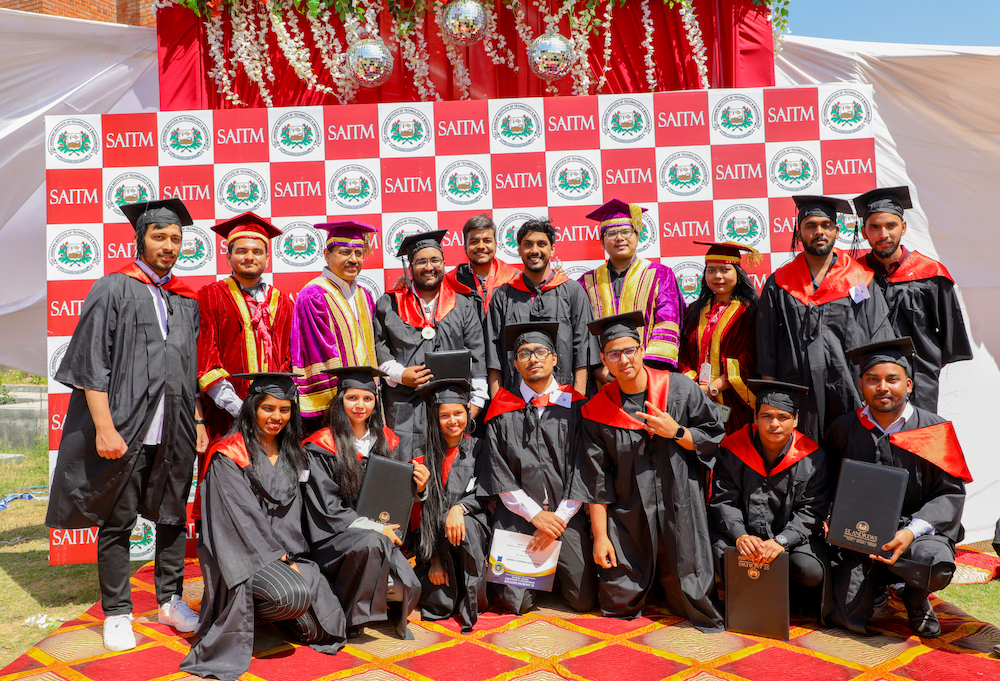
Image: SAITM Convocation
The top recruiters of MBA graduates often vary by region, the reputation of the business school, and the specific MBA specialization.
However, globally and across India, several companies are known for actively recruiting MBA graduates due to their leadership potential, strategic thinking capabilities, and analytical skills.
Here's an overview of top recruiters across various sectors:
Consulting
Mckinsey & Company: A global management consulting firm that serves a wide range of sectors, McKinsey is a top choice for MBAs aiming for consulting roles.
The Boston Consulting Group (BCG): Known for its strategic consulting services, BCG recruits MBAs for their problem-solving abilities and strategic insight.
Bain & Company: Specializing in management consulting, Bain often seeks out MBAs for their analytical skills and ability to drive results for clients.
Finance
Goldman Sachs: A leading global investment banking, securities, and investment management firm that recruits MBAs for roles in investment banking, asset management, and more.
J.P. Morgan Chase: Offers roles in investment banking, asset management, and wealth management, attracting MBAs with its prestigious reputation and global reach.
Morgan Stanley: Known for its investment banking prowess, Morgan Stanley recruits MBAs for various roles in finance, including equity and fixed-income research.
Technology
Google: Seeks MBAs for roles in product management, marketing, sales, and operations, valuing their business acumen and leadership qualities.
Amazon: Known for recruiting MBAs into leadership development programs and roles in operations, product management, and marketing.
Microsoft: Hires MBAs for roles in finance, operations, marketing, and product management, among others, leveraging their strategic thinking and leadership abilities.
FMCG and Retail
Procter & Gamble: A leading FMCG company that recruits MBAs for roles in marketing, finance, operations, and sales, valuing their ability to analyze market trends and drive business strategies.
The Coca-Cola Company: Offers roles in marketing, business development, and operations, seeking MBAs for their strategic insight and leadership potential.
Unilever: Recruits MBAs for leadership roles in marketing, finance, sales, and more, focusing on sustainable business growth and innovation.
E-Commerce and Tech Startups
Flipkart: One of India's leading e-commerce platforms, recruits MBAs for roles in operations, marketing, and strategy.
Uber: The global ride-sharing and logistics company hires MBAs for operations, marketing, and strategy roles, among others.
Byju's: An ed-tech company that often hires MBAs for roles in marketing, operations, and strategy to help scale its operations and product offerings.
Miscellaneous
Reliance Industries Limited: A conglomerate with interests in telecommunications, retail, and energy, Reliance recruits MBAs for strategic roles across its divisions.
Tata Consultancy Services (TCS): A global IT services, consulting, and business solutions organization that hires MBAs for consulting, strategy, and operations roles.
These companies appreciate the diverse skill set, strategic orientation, and leadership qualities that individuals with an MBA bring to the table.
Networking, internships, and leveraging the business school’s career services are crucial for landing positions in these prestigious organizations.
What You Learn in an MBA Program
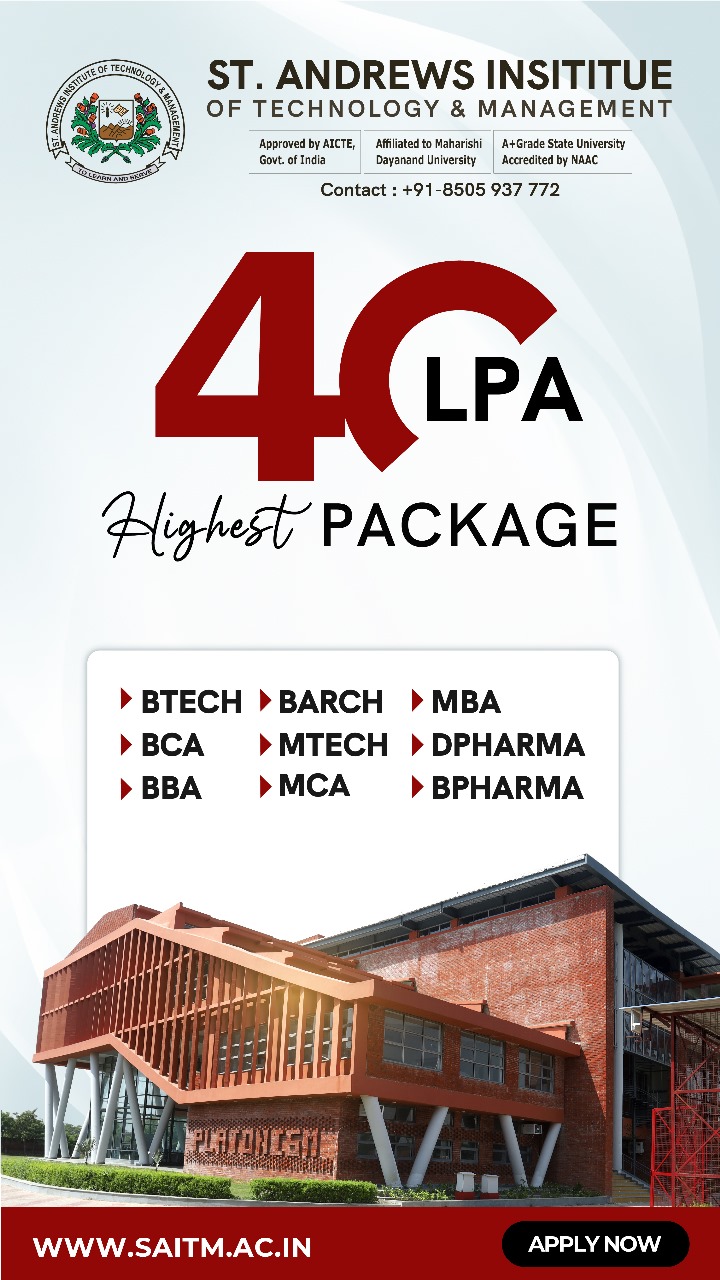
Image: New Management Building
An MBA (Master of Business Administration) program offers a comprehensive curriculum designed to impart a wide range of business, management, and leadership qualities.
The specific courses and learning outcomes can vary depending on the program's focus and the electives chosen by the student.
However, most MBA programs aim to cover several core areas of business education.
Here's an overview of what you typically learn in an MBA program:
Core Subjects
Accounting: Basic and advanced concepts in financial and managerial accounting, enabling students to understand and analyze financial statements.
Finance: Principles of finance including corporate finance, investment analysis, portfolio management, and financial markets and institutions.
Marketing: Fundamentals of marketing management, market research, consumer behavior, digital marketing, and brand management.
Operations Management: Operations strategy, process analysis, quality management, supply chain management, and logistics.
Organizational Behavior: Organizational Behavior is the study of human behavior in organizational settings, which examines individual, group, and organizational dynamics.
Economics: Microeconomics and macroeconomics, focusing on economic theory, market structures, and the impact of economic policies on business operations.
Business Strategy: Strategic management and competitive strategy, teaching students how to formulate and implement strategies to achieve organizational goals.
HRM: Recruitment, training, performance management, compensation, and employee relations.
Business Ethics and Corporate Responsibility: Ethical decision-making in business, corporate governance, and corporate social responsibility.
Entrepreneurship: Essentials of starting a new business, including opportunity recognition, business planning, and venture financing.
Electives and Specializations
In addition to the core curriculum, MBA programs frequently provide a variety of electives, enabling students to specialize in areas such as:
- Finance and Accounting
- Marketing
- HR
- Information Technology Management
- International Business
Skills Development
Analytical Skills: Analyzing data to make informed decisions.
Leadership and Management Skills: Leading teams, managing projects, and driving organizational success.
Strategic Thinking: Developing the ability to see the big picture and plan long-term strategies.
Communication Skills: Effectively communicating with stakeholders, including writing reports and delivering presentations.
Problem-Solving Skills: Identifying problems and developing innovative solutions.
Networking: Building and maintaining professional relationships.
Experiential Learning
Many MBA programs incorporate experiential learning opportunities, such as:
Internships: Real-world work experience in a field of interest.
Case Studies: Analysis of real business situations to apply theoretical knowledge.
Capstone Projects: Comprehensive projects that require applying what has been learned to solve a business challenge.
Global Immersion: Study trips or exchanges that immerse students in global commercial practices.
The blend of a robust theoretical foundation, practical learning experiences, and the enhancement of soft skills equips those with an MBA to assume leadership positions across different industries and manage the complexities of the global business landscape.
Program Highlights
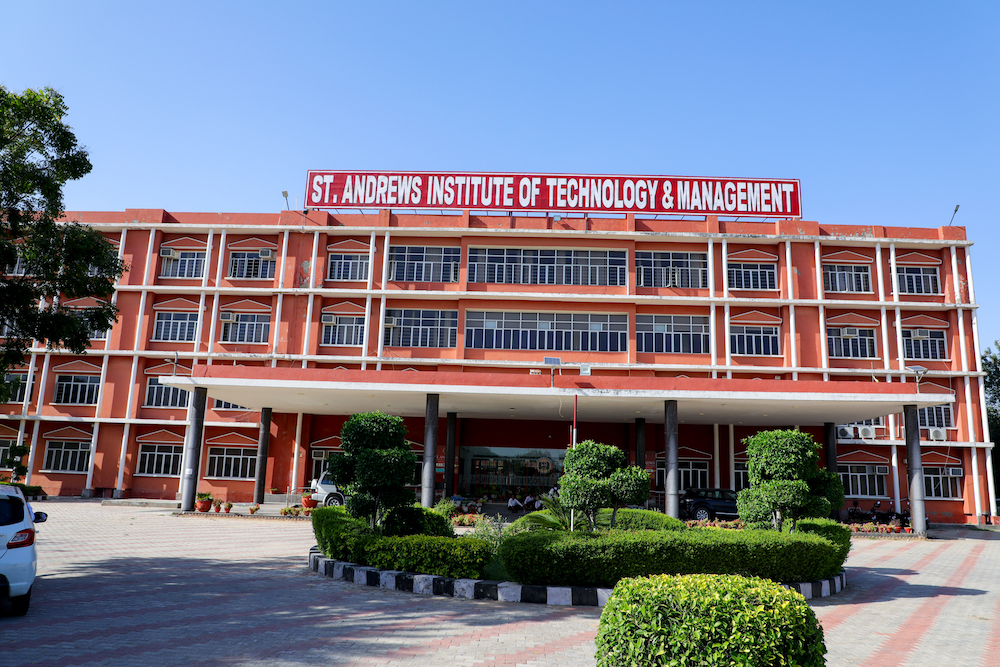
Image: St. Andrews College Main Block
Apart from the university syllabus, need-based courses have been identified and developed as per the requirements of the industry and will be evaluated by senior academicians from reputed institutions and senior executives from industries.
Salient features of the MBA program are:
- Approved by AICTE and affiliated to MDU, NAAC A+.
- Domain specialist Faculty
- TCS Certified Computer Labs
- Unique training-based pedagogy
- 6 Certifications in the duration of the program
- Academicians and industry Professionals from prestigious institutions like IIM’s and IITs.
- Strategic location in the education hub of North India.
- Library Resource Centre with the best collection of e-books, Journals, Research Publications & Magazines.
- Research deliberations and experience learning through academic conferences, seminars, workshops, and colloquiums
- Ultra Modern Hostel Facility for Girls & Boys separately
- 16 MoUs with leading corporate like BOSCH, TCS, etc.
- Seminars/Workshops
- Live Projects/Internship/OJT in First Year
- 100% Placement Assistance
Teaching Certifications offered in the duration of the program
- Certificate on MS Office
- Certificate in advanced Excel
- Digital Marketing
- Data Visualization
- Certificate on Power of Business Intelligence
- Workshop on Entrepreneurship and Start-ups
Teaching Pedagogy
- Classroom Discussion: The enriching lectures & discussions are key to learning concepts.
- Case Studies: To enhance analytical skills and lateral thinking
- Business Simulation: These help students apply theoretical concepts to real-life decision making
- Research Projects: Help to gain insight into every facet of management
- Webinars/Workshops: Unleash true potential
- Expert Talk/Guest Lecture: Industry experts share their corporate experience and learning
- Winter Internship/Summer Internship/Live Projects: Blend theory with practice through experiential learning
- Mentorship: Guidance from faculty and industry professionals on different aspects of work and life
- Personality Development Program (PDP): For developing industry-ready professionals
Infrastructure availability for the students
- SAITM offers a 22-acre lush campus for its MBA aspirants with wi-fi enabled, air-conditioned classrooms facilitated for uninterrupted communication and projection.
- The institute also provides a highly equipped computer and communication lab along with a massive library that is home to a rich knowledge bank.
- A massive cafeteria which is the favorite hanging joint of all the students along with exceptional medical and transportation facilities are just some other added benefits that the candidates of SAITM can enjoy.
- Bus services from Delhi NCR
Hostel Facility For MBA Students
Prospective students looking to enroll in the MBA program of SAITM can also avail themselves of the benefits of on-campus housing facilities provided by the university. There are separate residences available for girls and boys in the variants of 2 and 3-seaters. Students can choose the room as per their needs and budget.
Amenities provided: The residences come with basic facilities which are common throughout the hostels and include the following:
- Safety and security with CCTV surveillance
- Individual beds, almirah & study table
- In-campus dining with mess and canteen
- Common areas for discussion
- Wifi
- Indoor and outdoor sports activities
- Power backup
- Laundry facilities
- Shared library facilities
SAITM MBA Fees
The program fee for pursuing a 2-year MBA course from SAITM is Rs. 1,30,000/- per annum.
The hostel expenses for students looking to avail of on-campus accommodation while pursuing MBA courses at SAITM are as mentioned below.
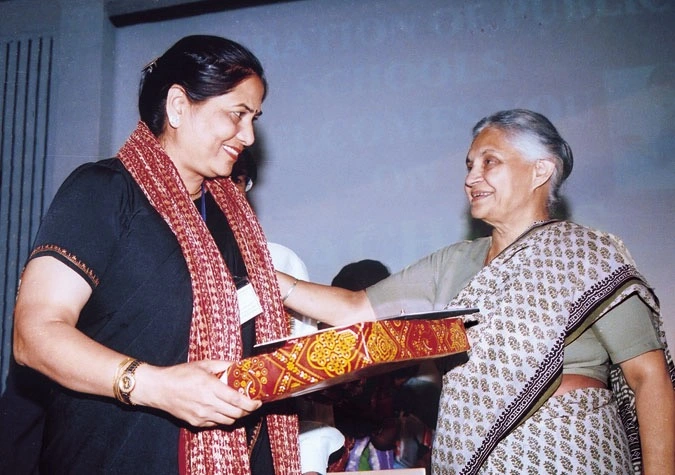
Image: Management of MBA College getting award
SAITM MBA Placements
SAITM ensures almost 100% placements for its Master of Business Administration (MBA) students and works dedicatedly towards preparing its students for the corporate world ahead. Be it workshops, seminars, timely industry visits, or technical training, the institute ensures that MBA students are placement-ready in all respects. Students are prepared to achieve high-paying Master of Business Administration jobs in companies that are industry leaders. This is highly evident through the spectacular numbers for MBA placements.
The list depicts some of the popular recruiters of and the packages offered by them to MBA students at SAITM.
|
Top Recruiters
|
Package offered (in LPA)
|
|
JARO Education
|
7
|
|
SNVA Ventures
|
7
|
|
Dudhi Industries
|
6.6
|
|
Byjus
|
10
|
|
CVent
|
5.5
|
|
INTELLIPAAT
|
5.3
|
|
Hello Study Global Internship
|
4.5
|
|
Creditas Solutions
|
4.2
|
|
Dyson
|
4.2
|
|
Q ACADEMY
|
12.5
|
FAQs
What is qualification in MBA?
An MBA, or Master of Business Administration, is a graduate-level degree aimed at providing students with advanced knowledge in business management and related areas.
To qualify for an MBA program, candidates usually need to have a bachelor's degree in any field from a recognized university. Additionally, many programs require candidates to pass an entrance exam, such as the CAT (Common Admission Test), XAT (Xavier Aptitude Test), CMAT (Common Management Admission Test), MAT (Management Aptitude Test), to demonstrate their aptitude for business studies.
Furthermore, relevant work experience is often a common requirement, with many top programs preferring candidates who possess two or more years of professional experience.
Some institutions may require letters of recommendation and a personal statement or essays as part of the application process.
Which MBA has highest salary?
MBA specializations with the highest salary potential typically include Strategy, Technology Management, Finance, and Consulting. Individuals with a Strategy MBA often land lucrative positions in management consulting and strategic planning.
Consequently, those specializing in Technology Management are highly sought after in the tech sector, primarily for roles such as product managers and IT consultants. Finance specialists command high salaries in investment banking, corporate finance, and private equity.
Consulting remains a top-paying field, with graduates working as management consultants to solve complex business challenges.
Salaries fluctuate depending on factors such as location, industry, and experience; however, these specializations typically offer robust earning potential.
Is MBA a 2 year course?
Yes, a traditional full-time MBA programs usually lasts 2 years, focusing on providing a comprehensive understanding of business management practices and developing leadership skills.
Nonetheless, it's important to note that there are variations in MBA programs, including 1-year accelerated programs, executive MBA programs with potentially differing durations, and part-time options.
Is MBA good for job?
Furthermore, an MBA degree can significantly enhance job prospects by equipping graduates with advanced business knowledge, fostering leadership skills, and providing access to a valuable professional network.
It opens doors to higher-level management positions and increases earning potential.
An MBA degree is versatile, offering opportunities across diverse industries including finance, consulting, technology, and healthcare. This versa tility positions it as a valuable asset for career advancement.
What is the Master of Business Administration?
The Master of Business Administration (MBA), a postgraduate business degree, is designed to cultivate the skills essential for careers in business and management. It encompasses a wide range of subjects including finance, marketing, operations, and strategy.
How useful is a Masters in business administration?
The MBA degree is exceedingly valuable for individuals aspiring to progress into upper management and leadership roles within their careers.
This program not only delivers comprehensive knowledge in diverse business disciplines but also enhances decision-making and analytical skills simultaneously. Furthermore, it significantly elevates earning potential and, by fostering connections with peers, alumni, and industry leaders, substantially broadens professional networks.
Is Masters in Business Management a good career?
Pursuing a Master's in Business Management (MBM) is a good career choice for individuals aiming to advance in the business world.
It equips students with essential management and leadership skills, broadens their understanding of business operations, and enhances their strategic thinking capabilities.
Graduates often find rewarding opportunities in diverse sectors, leading to career growth and potentially higher salary prospects.






















